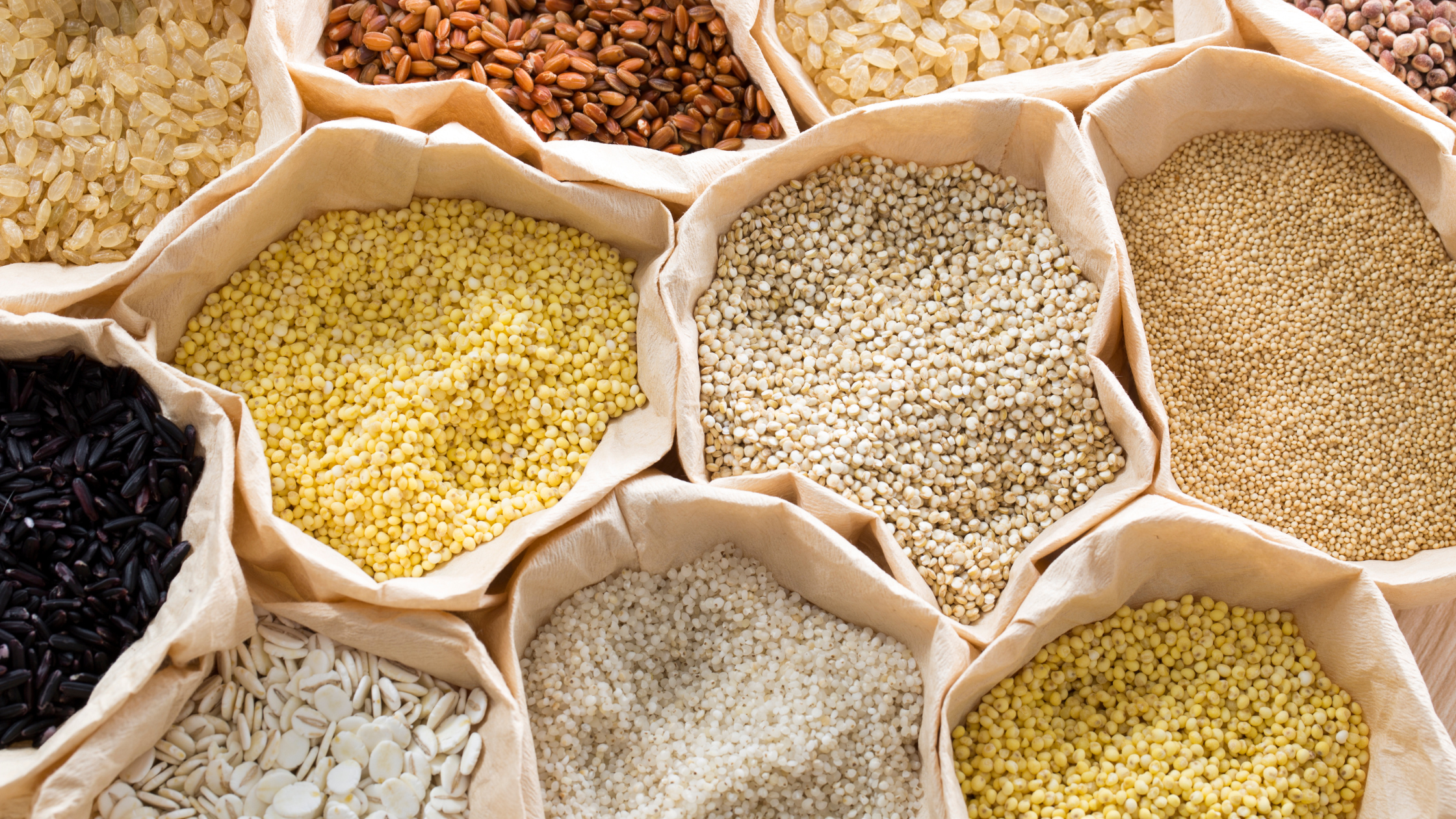Introduction
Millets are a group of small-seeded grains that have been cultivated for thousands of years. Known for their nutritional benefits and versatility, millets are making a comeback in modern diets. This article explores the different types of millets, their health benefits, and various ways to incorporate them into your meals.
Types of Millets
Millets come in various types, each with unique nutritional profiles and culinary uses. Here are some of the most common types:
| Type | Nutritional Highlights | Culinary Uses |
|---|---|---|
| Pearl Millet | High in protein, fiber, magnesium, iron | Porridge, flatbreads, fermented drinks |
| Finger Millet | Rich in calcium, iron, antioxidants | Porridge, pancakes, baby food |
| Foxtail Millet | Low glycemic index, rich in fiber, iron | Salads, soups, pilafs |
| Proso Millet | High in protein, low in fat, B vitamins | Breakfast cereals, bread, beer |
| Barnyard Millet | High in fiber, iron, magnesium | Idlis, dosa, fried rice |
| Kodo Millet | Rich in fiber, polyphenols | Salads, upma, khichdi |
Nutritional Benefits of Millets
Millets are packed with essential nutrients that offer numerous health benefits. Here’s a closer look at why you should consider adding millets to your diet:
Rich in Nutrients
Millets are a good source of vitamins and minerals, including B vitamins, iron, magnesium, phosphorus, and potassium. These nutrients are vital for various bodily functions, including energy production, bone health, and immune function.
High in Dietary Fiber
The high fiber content in millets aids digestion, helps control blood sugar levels, and promotes a feeling of fullness, which can be beneficial for weight management.
Gluten-Free
Millets are naturally gluten-free, making them an excellent alternative for individuals with celiac disease or gluten intolerance.
Antioxidant Properties
Millets contain antioxidants such as polyphenols and phytochemicals that help protect the body against oxidative stress and reduce the risk of chronic diseases.
Health Benefits of Millets
Improved Digestive Health
The fiber in millets supports healthy digestion by adding bulk to the stool and promoting regular bowel movements. It can also prevent constipation and improve overall gut health.
Blood Sugar Control
Millets have a low glycemic index, which means they release glucose into the bloodstream slowly. This helps in maintaining steady blood sugar levels and can be beneficial for individuals with diabetes.
Heart Health
The magnesium and potassium in millets help regulate blood pressure and support heart health. The antioxidants in millets also contribute to reducing inflammation and lowering the risk of cardiovascular diseases.
Incorporating Millets into Your Diet
Millets can be used in various dishes, from breakfast to dinner. Here are some ideas to get you started:
Breakfast
- Millet Porridge: Cook millets with milk or water, and top with fruits, nuts, and honey.
- Millet Pancakes: Use millet flour to make nutritious pancakes.
Lunch and Dinner
- Millet Salad: Combine cooked millets with vegetables, herbs, and a light dressing for a healthy salad.
- Millet Pilaf: Substitute rice with millets in your favorite pilaf recipe for a nutritious twist.
Snacks
- Millet Cookies: Bake cookies using millet flour for a gluten-free snack.
- Millet Upma: A savory South Indian dish made with millets, vegetables, and spices.
Conclusion
Millets are a nutrient-dense and versatile addition to any diet. Their health benefits, coupled with their ability to be used in a wide range of dishes, make them a great alternative to more commonly consumed grains. Start incorporating millets into your meals today to reap their numerous health benefits.
For more tips on nutrition and healthy eating, visit our Nutrition section.

